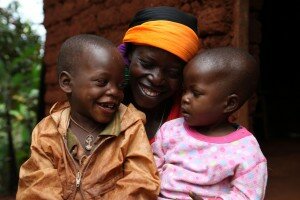It is with great sadness that the Global Network shares the news of the passing of Representative Donald Payne (D-NJ). Rep. Payne died in New Jersey after a brief battle with colon cancer. The first African American to be elected to represent New Jersey’s 10th District, Rep. Payne was a tireless advocate of humanitarian assistance and spoke out on behalf of people suffering from disease, persecution, and poverty around the world.
As a senior member of the House Foreign Affairs Committee as well as the highest ranked Democrat on the Subcommittee on Africa, Global Health, and Human Rights, Rep. Payne worked on legislation to promote democracy, protect human rights, and facilitate famine relief, to name just a few of his accomplishments. He also helped secure $50 billion in funding for HIV/AIDS, TB, and Malaria under PEPFAR.
In 2008, Rep. Payne, in collaboration with now Senator John Boozman (R-AR) and former First Lady Laura Bush launched the Congressional Malaria Caucus to raise awareness of the United States’ efforts to control and treat malaria. Rep. Payne took his commitments to global health one step further in 2009 by expanding the Caucus to include neglected tropical disease (NTD) control and prevention within its mission.
With the announcement of his position as Co-Chair of the Caucus for the 112th Congress, Rep. Payne asserted that, “In a time of crucial discussions about U.S. foreign assistance reform, malaria and NTD control and prevention represent some of the strongest returns on investment for foreign assistance dollars.” His comments resonate with the Global Network’s mission and reflect his dedication to improving the lives of the world’s bottom billion. In 2010, Rep. Payne sponsored a Congressional briefing, “Can NTDs be Eliminated?” hosted by the Global Network, signifying his strong support in the fight against NTDs and for which we are truly grateful. In a statement by Caucus Co-Chair, Rep. Jeff Fortenbery (R-NE) today, he echoed those sentiments as he mourns the loss of a good friend.
It was a pleasure to work with Rep. Payne and his staff in the fight against NTDs, and the Global Network will remember him as a true champion of neglected diseases and neglected people around the world.


